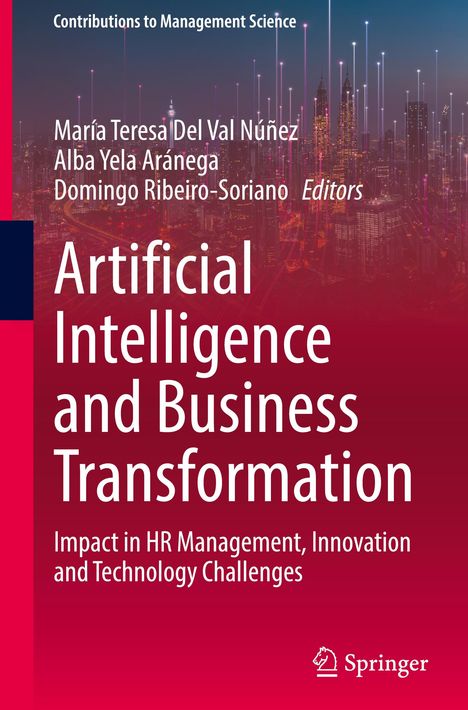Artificial Intelligence and Business Transformation, Gebunden
Artificial Intelligence and Business Transformation
- Impact in HR Management, Innovation and Technology Challenges
(soweit verfügbar beim Lieferanten)
- Herausgeber:
- María Teresa Del Val Núñez, Alba Yela Aránega, Domingo Ribeiro-Soriano
- Verlag:
- Springer, 07/2024
- Einband:
- Gebunden, HC runder Rücken kaschiert
- Sprache:
- Englisch
- ISBN-13:
- 9783031587030
- Artikelnummer:
- 11909364
- Umfang:
- 264 Seiten
- Gewicht:
- 565 g
- Maße:
- 241 x 160 mm
- Stärke:
- 20 mm
- Erscheinungstermin:
- 2.7.2024
- Hinweis
-
Achtung: Artikel ist nicht in deutscher Sprache!
Weitere Ausgaben von Artificial Intelligence and Business Transformation |
Preis |
|---|
Klappentext
This book offers a current perspective on Artificial Intelligence in the context of an ever-changing and growing technological revolution in business management. It analyses how existing companies are adapting, new ones are emerging, and others are disappearing. Process re-engineering has made it possible to reshape organizational structures and create new departments and positions, all geared towards digitalization. The emergence of new business functions has led to new strategic thinking on e. g. companies¿ structure, size, and core business ¿ but also to the creation of new jobs, the need to cover digital skills, and the need for innovative team management. In short, it is a question of delving deeper into HR and the impact that digitalization has had on it, as the employee is one of the key figures to protect.
The book initially focuses on providing a review of the current literature on the advancement of Artificial Intelligence and its impact on business transformation and the emergence of new management models. In turn, it addresses the diverse perspectives that currently dominate the business market, as well as the corporate transformations that have taken place in the post-pandemic era. Lastly, it equips employers with new tools to incorporate into their organizations, facilitating talent retention. In connection with HR, this digital transformation is reflected in new roles for change management and cultural transformation, including the use of digital technologies to improve the employee experience. In brief, the book offers a practical guide to business transformation, technological advances, and their application in human resources departments.

